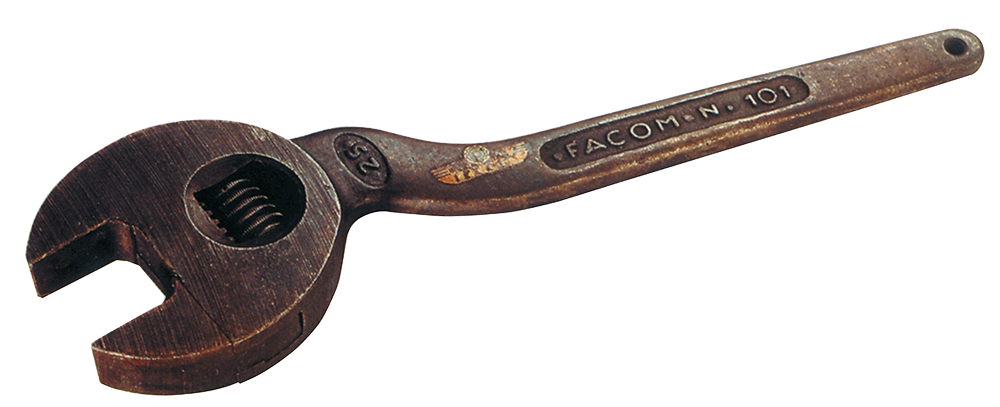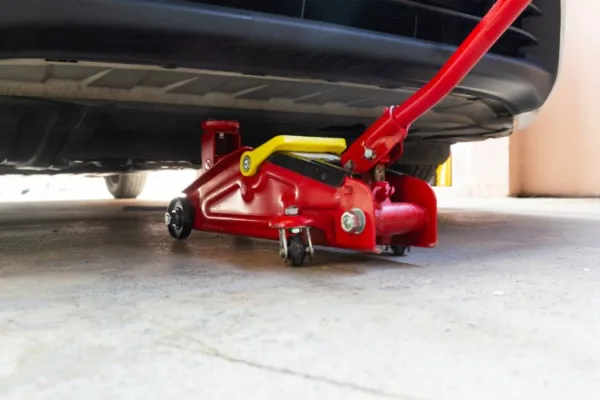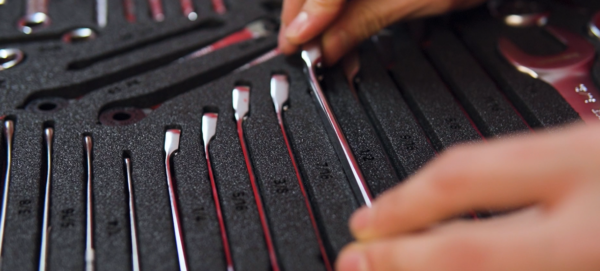
Established in Paris during 1918, FACOM have grown from being the manufacturer of one single tool – the “101 spanner” or “Madam 101” – to the leading provider of hand tools throughout Europe.
According to the official FACOM website, around 60% of their tools are manufactured across 4 plants located in France and throughout Europe, whilst around 35% are manufactured by industrial partners in the Stanley Black&Decker Group, with strict specifications written by FACOM engineers adhered to.
1918-1920: On 8th May 1918, Louis Mosès founded the Société Franco-Américaine de Construction d’Outillage Mécanique (Franco-American Mechanics’ Tool Production Company) with a number of relatives and friends. The company would later be referred to by its initials; FACOM.
The first tool manufactured by this new company would – a rustic spanner – initially received the code name “101 spanner”, which was largely sold to railway companies. This tool would be the only product manufactured by FACOM for an entire year, although the “101 spanner” achieved a very successful life, as it only stopped being manufactured in the 1960s.

1920-1930: The FACOM product range expanded dramatically as a result of motor vehicles hitting the roads, and this saw the company’s first contract signed with Renault for a 23cm monkey wrench. This was soon followed by a new deal being agreed with Peugeot, which saw FACOM develop an adjustable spanner fitted with a wooden handle.
As new technology was invented and fresh innovations came to the fore, FACOM became increasingly part of their success. This included a close relationship being created with Air France, and this led to the company’s first ever logo, which was based on their commitment to supporting the automobile and aviation industry
1930-1950: By the early 1930s, the company boasted a product range of over 500 items, which subsequently led to greater worldwide awareness of what FACOM could provide its users. This resulted in an average rise in turnover of 13% per year over three decades and a fourfold increase in production compared with before World War II.
1950-1970: FACOM was manufacturing 50,000 tool pieces each month by the early 1950s but, just twenty years later, the Villeneuve-le-Roi factory alone would be producing 50,000 per day!
In 1950, the first “Isoryl” handle screwdriver was manufactured by the company, which was closely followed by the wheel balancing machine (1954) and the saw frame with automatic hand position (1959), which helped to further cement them as an ever-growing force in the tool industry.
During this time, the company focused more heavily on exporting their tools worldwide, which greater focus placed on the Northern Europe and the Mediterranean region, whilst FACOM tools also began to appear in South America and South-east Asia.
Such was the strength and quality of FACOM tools, the company decided to offer a “lifetime guarantee” on them, which is a promise that still applies to the vast majority of tools within catagloue.
1970-1993: Big changes took place at the company in the early 1970s, which saw FACOM being listed on the Paris stock market in 1971. This took place due to market internationalisation becoming an important part of the company strategy in 1970, which resulted in the formation of the Belgian and German subsidiaries of FACOM in the same year, before additional subsidiaries formed in Italy (1971), England and the Netherlands (1977), Switzerland (1981), the US (1982) and Spain (1988).
In 1983, FACOM was ranked as Europe’s leading hand tools manufacturer (9% market share), holding third place globally. This was achieved due to one in three company tools being sold from outside France, highlighting the ever-growing reach of the company’s tools worldwide.
By 1990, the company was distributing 7259 tool lines and had a catalogue published in 10 languages with 800,000 copies printed in total.
To this day, FACOM’s presence in sectors such as the mechanical, the electrical, aerospace, electronics, public works, building and the automotive industry is huge and continuing to grow all the time.















